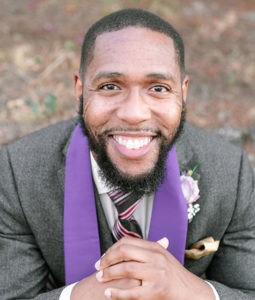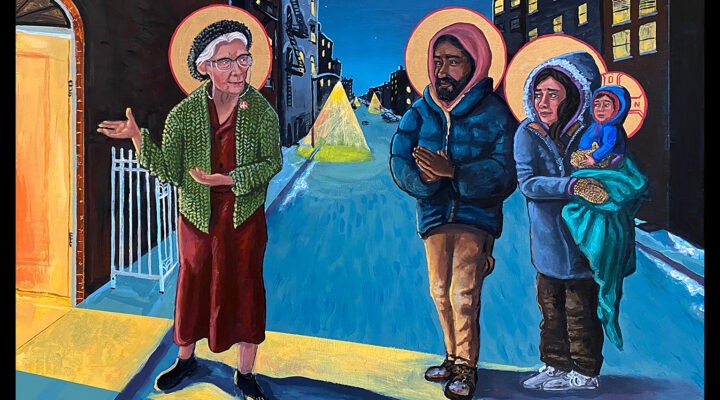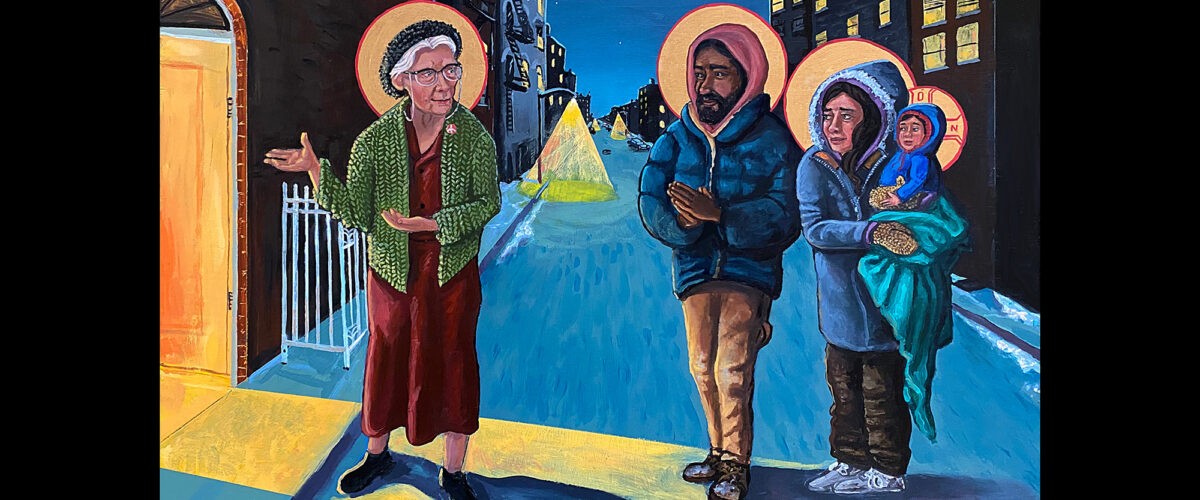Three months ago, I became a father to a baby girl — my firstborn. Daily, I am amazed how something so small can draw out of me so much love.
I am not underselling it to say that in such a short time she has made me a better man and a better minister. She has revealed much to me about God’s nature that once felt incomprehensible. Although I cannot fully communicate the depths of this revelation, when I hold my daughter in my arms, I realize that spoken words are not the only ways to prove understanding.

Darrell Hamilton
Likewise, holding her creates a seamless juxtaposition where my dual identities as someone’s parent and someone’s child intersect. She is me, and I am her. We are eternally bound not merely by shared DNA but by similar needs and experiences of the world. This revelation births empathy.
Furthermore, this revelation births deeper reflection on the significance of fatherhood and compels me to ask: What might my presence in the life of my daughter mean in the grand narrative of her life? What does her presence mean for mine?
I find myself thinking about Joseph during this season of Advent. Advent is centered on the coming of Christ and what his birth means for the salvation of the world. Additionally, Advent says much about Mary and her experience as the one chosen to bear the Son of God, and rightfully so. However, not much seems to be said about Joseph and his meaning for the season.
Scripture tells us that Joseph was a righteous man, and we know his presence gave genealogical verification to Jesus as the Christ, a descendent of David and Adam. Yet what we don’t know is how witnessing the birth of his firstborn child might have changed him and his heart as he was thrust into fatherhood for the first time.
We often ask this of Mary, but did Joseph know “that his baby boy would one day walk on water and save our sons and daughters?” Did Joseph know “that his baby boy had come to make him new; that the son that Mary delivered would deliver him, too?” Did Joseph know “that his baby boy walked where angels trod; when he kissed his little baby that he’d kissed the face of God?”
“What we don’t know is how witnessing the birth of his firstborn child might have changed him and his heart as he was thrust into fatherhood for the first time.”
Oh, Joseph, Joseph, did you know?
Scholars disagree about the reason for Joseph’s scant references in the overall gospel story. Yet, the Gospels are clear that Jesus was widely known as Mary and Joseph’s son (Matthew 1:18-25; Mark 6:3; Luke 4:22; John 6:42). Thus, whether for a long or a short time, it cannot be understated that Joseph’s presence was meaningful in shaping Jesus into who he is now regarded to be.
Jesus’ survival and flourishing cannot begin without Joseph being present to help him navigate the horrors of oppression and imperial occupation (Matthew 2:13). As a father, Joseph had the burden of teaching Jesus how to live with care and compassion for himself and his people. Likewise, as a Black father tasked with raising a Black son, Joseph had to show Jesus that righteousness and justice often compels us to go beyond the letter of the law and the confines of tradition.
I can testify that my life has been irreversibly changed by the arrival of my daughter, and I am sure Joseph can relate. Joseph’s heart would have undoubtedly melted at the sight of his child’s first smile. When Jesus reached out for him, Joseph would have swiftly swooped him up to secure him in his strength and the comfort of his bosom. In the wee hours, when Jesus beckons the entire house awake, he would have discipled Joseph regarding tenderness, patience, long suffering and grace.
Not by DNA, but mutual affection and interdependence is a father eternally bound to his child(ren), and vice versa. Even though Mary was chosen to be the God-bearer, Joseph was commanded to be the God-rearer. Yet, this relationship would not only go one way because Joseph’s own survival and flourishing would not be the same without his child also being there to shape him.
There is no guarantee whether I will be in my daughter’s story for a long or short time. But, what I, and all of us, can learn from Joseph is that our presence in the lives of our children — and their presence in ours — is the most important gift that ever could be exchanged. The world needs more “Joseph-figures” who exude presence and commitment, and God only knows what this could mean for our children, ourselves and the world.
Darrell R. Hamilton II serves as executive minister for operations and resource development at Middle Collegiate Church in New York City. Previously, he served as pastor for formation and outreach at First Baptist Church in Jamaica Plain, Mass. He is an ordained Baptist minister and graduate of Wake Forest School of Divinity.
Related articles:
When obeying God means disobeying the Bible | Opinion by Chuck Queen
Responding to immigrants as ‘refugees from Bethlehem’: on the road with the Holy Family(s) | Opinion by Bill Leonard
What if white Christians had a more realistic image of Jesus, a dark-skinned, religious-minority refugee? | Opinion by Laura Mayo


